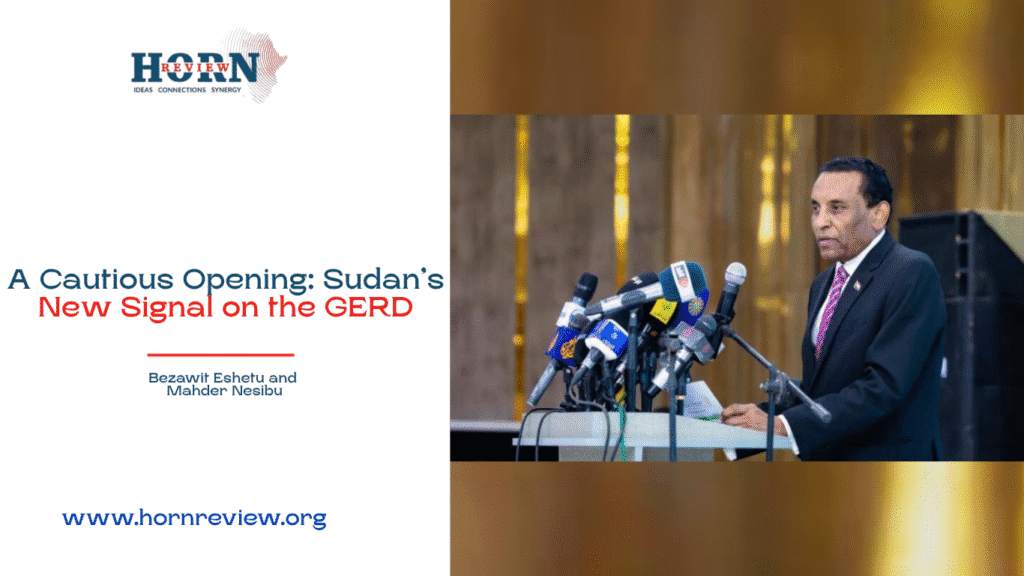Sudan’s New Approach to the Grand Ethiopian Renaissance Dam
On October 1st, Prime Minister Kamil Idris of Sudan made a noteworthy commitment in Port Sudan: a public vow to reassess the trilateral arrangements concerning the Grand Ethiopian Renaissance Dam (GERD). This declaration carries significant implications for regional diplomacy and water security.
A Shift in Diplomatic Strategy
Idris’s pledge comes on the heels of his participation in the United Nations General Assembly, lending his words heightened credibility as he has extensive experience in international civil service. This signals a potential shift in Sudan’s engagement with both Ethiopia and Egypt concerning the dam’s operational rules and downstream assurances, moving away from confrontational tactics toward collaborative solutions.
Historical Context of Sudan’s Position
Under the leadership of Omar al-Bashir, Sudan maintained a complicated stance regarding the GERD, balancing rhetorical solidarity with practical support. For instance, Sudan provided vital construction machinery worth roughly $10 million to Ethiopia in 2011, aiding in the dam’s early construction. This cooperation allowed Ethiopia to pursue its developmental aspirations while downplaying territorial disputes.
However, following the transition away from Bashir’s rule, Sudanese officials sought clearer operating mechanisms and robust safety assurances. The 2015 Declaration of Principles remained a foundational reference, fostering dialogue focused on technical standards rather than political rhetoric.
The Impact of the October 2021 Coup
The October 2021 coup marked a turning point, reintroducing a security-driven rationale into Sudan’s foreign policy. As the influence of security actors grew, diplomatic messages from Khartoum began to oscillate between alliance politics and broader regional rivalries, particularly with Egypt. This shift means that any new proposals from Sudan may be scrutinized for underlying political motives rather than purely technical concerns.
Ethiopia’s Strategic Response
For Ethiopia, the current moment requires a keen understanding of the situation. Treating Sudan’s overtures as an operational opportunity is crucial, but it’s equally important to ensure that the dialogue remains focused and productive. Ethiopia’s approach should emphasize the following:
-
Technical Over Political Negotiations: Engage in discussions that are narrowly defined and centered on technical aspects, ensuring that Ethiopia’s right to resource development remains protected.
-
Countering Downstream Protests: Recent protests claiming Ethiopia’s filling of the reservoir is reckless necessitate a robust technical rebuttal:
- The GERD was established as a sovereign development initiative, following accepted engineering practices.
- The dam also provides immediate benefits such as regulated flow and flood control, which can be structured into practical agreements.
- Any closure or resolution should be operationally sound and verifiable rather than surface-level.
Potential Outcomes of Idris’s Pledge
Idris’s statement could unfold in two ways:
An Optimistic Approach
If taken at face value, this initiative might indicate a sincere attempt to reshape the dialogue around the GERD into actionable agreement. The potential exists for creating verifiable operating instruments like hydrological scenarios and transparent release protocols. Ethiopia ought to extend an invitation to talks, possibly under African Union facilitation, establishing pre-defined, trackable deliverables.
A Cautious Stance
Conversely, there is a possibility that Sudan may leverage the GERD dialogue for broader political gains, seeking to enhance its international standing or build leverage amongst regional players. Sudan’s past calls for quartet mediation highlight the allure of multilateral engagement, regardless of the effectiveness in addressing technical issues.
Operational Recommendations for Ethiopia
To maximize the potential of this diplomatic opening, Ethiopia should insist on three core features in any negotiation process:
-
Joint Technical Modeling: Ensure that technical assessments are conducted and published by mutually acceptable teams, complemented by third-party audits.
-
Defined Release Regimes: Establish a specific release protocol for drought conditions, framed around measurable actions instead of abstract principles.
-
Clearly Defined Dispute Mechanism: Implement an enforceable dispute resolution framework that is strictly operational in nature, shielding it from wider political influences.
Conclusion
Kamil Idris’s recent pledge is a promising indicator that Sudan may be open to dialogue regarding the GERD, and it cannot be dismissed lightly, considering the context and platform from which it originated. However, Ethiopia must approach this opportunity with caution and strategic foresight, ensuring that negotiations remain focused on tangible, verifiable outcomes that simultaneously protect its development rights and foster regional cooperation. By maintaining institutional vigilance and advocating for technical solutions, Ethiopia can navigate this complex landscape effectively.
By following these guidelines, a fragile balance can potentially be achieved, allowing for sustainable management of shared water resources amid ongoing regional tensions.
